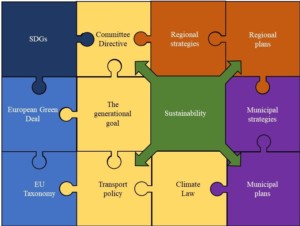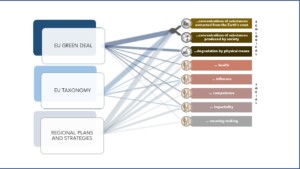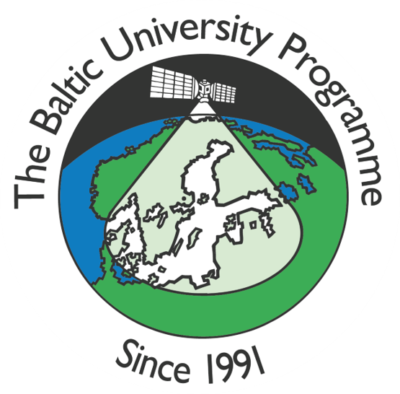Varvara and Thomas represent Roadmapper at the BUP Symposium 2021
On the 20th of October 2021, Varvara Nikulina and Thomas Berger have presented their research in Workpackage 1 of the Roadmapper project at the Baltic University Programme Symposium 2021.
“Making a jigsaw puzzle: integrative sustainability indicators for transport sector in Blekinge, Sweden”
Varvara Nikulina, Henrik Ny, Judith Oginga Martins, Lisa Wälitalo, Thomas Berger

Transport policy and strategic documents for Blekinge Region integrated into the study. ©Varvara Nikulina
Municipal authorities in Blekinge alongside other authorities in Sweden struggle to integrate all the local, national and international long-term goals they need to consider, in particular those related to sustainability. Additionally, there seems to be a disconnect in the relationship between the regional and municipal authorities that are striving for a sustainable outcome but do not manage to work effectively together to implement actions towards the desired future.
This study aims to develop easy-to-use preliminary sustainability indicators for the transport sector in Blekinge, Sweden. A transdisciplinary co-production of knowledge approach is used since it is suitable to address such wicked challenges that cannot be resolved by individual organisations using existing approaches. The indicators are based on theoretical input (sustainability principles[1]), policy (major international goals and agreements) and practice (already existing planning documents), as well as close contact with regional and municipal practitioners who deal with these issues on a daily basis.
The resulting preliminary indicators are expected to be useful both for the municipalities and the region to guide work towards a sustainable future, as well as to monitor their progress along the way. Considering the local needs of relevance to the annual budgets, the indicators have both short- and long-term focus.
It is expected that the approach could also be useful for other regions in Sweden and abroad.
“The European Green Deal and EU Taxonomy – a systematic approach for integrating sustainability goals in the transport sector: the case of Blekinge region, Sweden”
Thomas Berger, Varvara Nikulina, Henrik Ny, Lisa Wälitalo

Mapping of the European Green Deal, EU Taxonomy and Blekinge transport regional strategies and plans to the sustainability principles. ©Thomas Berger
Regional and local authorities have numerous responsibilities within various areas, and generally, sustainability issues have not been prioritized enough to meet certain international and national goals. This could be due to several reasons, such as lack of resources and appropriate processes to integrate sustainability goals in planning practices.
The aim of this study was to investigate to what extent the goals of the European Green Deal and EU Taxonomy, specifically focusing on the transport sector were already integrated within existing regional strategies, roadmaps, and planning documents in the Blekinge region, Sweden. An assessment of the addressed socio-economic systems, according to the sustainability principles (SPs1), was conducted. The data built on a thorough analysis of policy documents such as the European Green Deal and its follow up document “Sustainable and Smart Mobility Strategy – putting European transport on track for the future” and EU Taxonomy (Taxonomy Climate Delegated Act) and its follow up documents Annex I – climate mitigation and Annex II – climate adaptation, as well as on regional planning documents such as the regional development strategy.
The preliminary results showed that, even though the goals stated in the European Green Deal and EU Taxonomy have not yet been systematically integrated, some of them were already addressed and several are even more ambitious. However, some of the sustainability principles were not targeted, nor by the EU in the European Green Deal nor by region Blekinge in the regional goals. To conclude, there is a lack in a systematic integration of international goals on a regional level.
[1] Broman, Göran Ingvar, and Karl-Henrik Robèrt. 2017. ‘A Framework for Strategic Sustainable Development’. Journal of Cleaner Production 140: 17–31. https://doi.org/10.1016/j.jclepro.2015.10.121.
Contact
Varvara Nikulina
PhD Candidate in Strategic Sustainable Development
Blekinge Institute of Technology
371 79, Karlskrona, SWEDEN
direct: +46 455 38 55 59
mobile: +46 734 22 36 22
Thomas Berger
PhD Candidate in Strategic Sustainable Development
Blekinge Institute of Technology
371 79, Karlskrona, SWEDEN
direct: +46 455 38 55 70




Leave A Comment